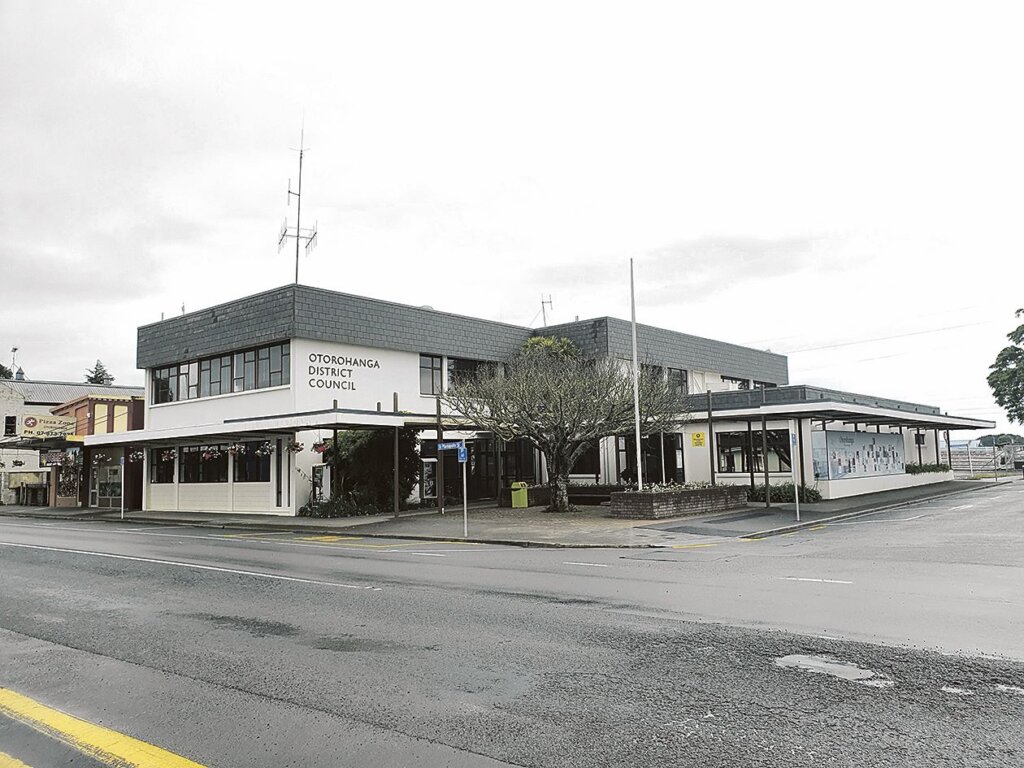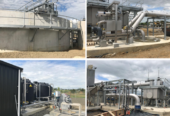The News reported that the three water supplies for Arohena would revert to their original intended use – providing water for livestock.
The headline of the article suggested the water services regulator for New Zealand was “turning off the rural taps”.
In fact the taps will remain very much turned on – but the water they carry will not be presented as fit for human consumption.
In a statement Taumata Arowai told The News it was committed to taking a reasonable approach to ensuring communities have safe drinking water and public health is not put at risk.
Issues relating to the Arohena scheme’s three water supplies – Huirimu, Kahorekau and Taupaki – date back to before the present Water Services Act and the creation of Taumata Arowai.
In October 2023, the agency sent letters to a series of councils around the country asking them to provide a funded plan to install protozoa barriers in their drinking water treatment.
Ōtorohanga District Council had until June 30 to provide a plan, but faced with high costs, elected to revert the system to a stock only supply.
At present the supplies carry a “boil” notice.
Taumata Arowai pointed to the 2016 Havelock North waterborne illness outbreak, which resulted in an estimated 8000 campylobacteriosis illnesses and four deaths as an example of why it was important to ensure water suppliers maintained multiple barriers to prevent contamination.
“The approach proposed by the council is for control of the scheme to shift to scheme users and for it to revert to its original intended (livestock only) use. As indicated by council in your article, many of the 270 people currently serviced by the scheme have alternative supplies of drinking water, mainly through bore water or rainwater,” the statement read.
22 June 2024
Ōtorohanga’s rural water schemes will be deemed useable for stock only as a result of national water regulator Taumata Arowai requiring expensive upgrades.
In a letter threatening enforcement action, the agency has given the district council until the end of the month to confirm a funding plan for a required protozoa barrier for the three Arohena water supplies – and have it operating by December 2024. Protozoa are microscopic single celled animals.

Stringent water rules have forced Ōtorohanga District Council to recommend a downgrade rural water supplies
Waikato District Health Board placed the three supplies under permanent Boil Water Notice in February 2021. They make up the Arohena scheme and users were surveyed in 2018 on removing the drinking water part of the scheme, as was done at Ranginui rural water scheme in 2016.
A 2017 report to the council by engineering consulting company Beca estimated the total cost to meet compliance for the Huririmu, Koharekau and Tuapaki supplies was more than $6 million. The three supplies serve just over 200 properties and the requirement was regarded as unaffordable for that ratepayer base.
A staff recommendation to the council’s Risk and Assurance Committee is that the Arohena schemes remain under the boil notice and staff pursue closing down the drinking water provision of the Arohena Rural Water Scheme – and inform Taumata Arowai.
Arohena’s three individual supplies run independently of each other and supplying water to farmers, rural dwellings and the Arohena School.
“There are people on there who don’t drink this water currently, they have alternate supplies whether it be bore or rainwater,” Council engineering and asset manager Mark Lewis said.
“I think it’s quite unique to have a rural water scheme out in a rural area that is supplying drinking water. Most farming communities within New Zealand would have their alternative water supplies for drinking already.
“So it’s not something new to the rural sector. They’re a very resilient sector of our community. I’m sure that a lot of them would already have existing systems in place so its slightly different than if we were to be looking at a permanent drinking water supply.”
Replying to a question from independent chair Peter Stubbs, Wharepuhunga ward councillor Cathy Prendergast agreed the water scheme users were happy with what was been proposed.
The Arohena Rural Water Scheme Committee was fully aware of the challenges the council faced and was fully aware of the primary purpose of the scheme – to support agricultural activities.
“They do not wish to incur significant financial burden being placed on the scheme that will ultimately lead to an increased per cubic metre cost and invariably push the cost until it is unaffordable to remain on the scheme.”
The Arohena rural water scheme was built in the 1982. The intent was to provide reliable and affordable water for the primary use of agriculture. Because the water was also being consumed by people the rural schemes evolved into drinking water suppliers.








